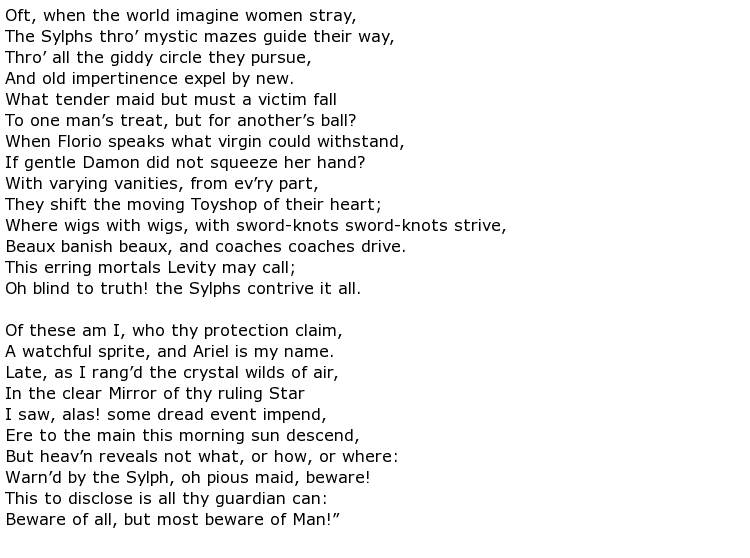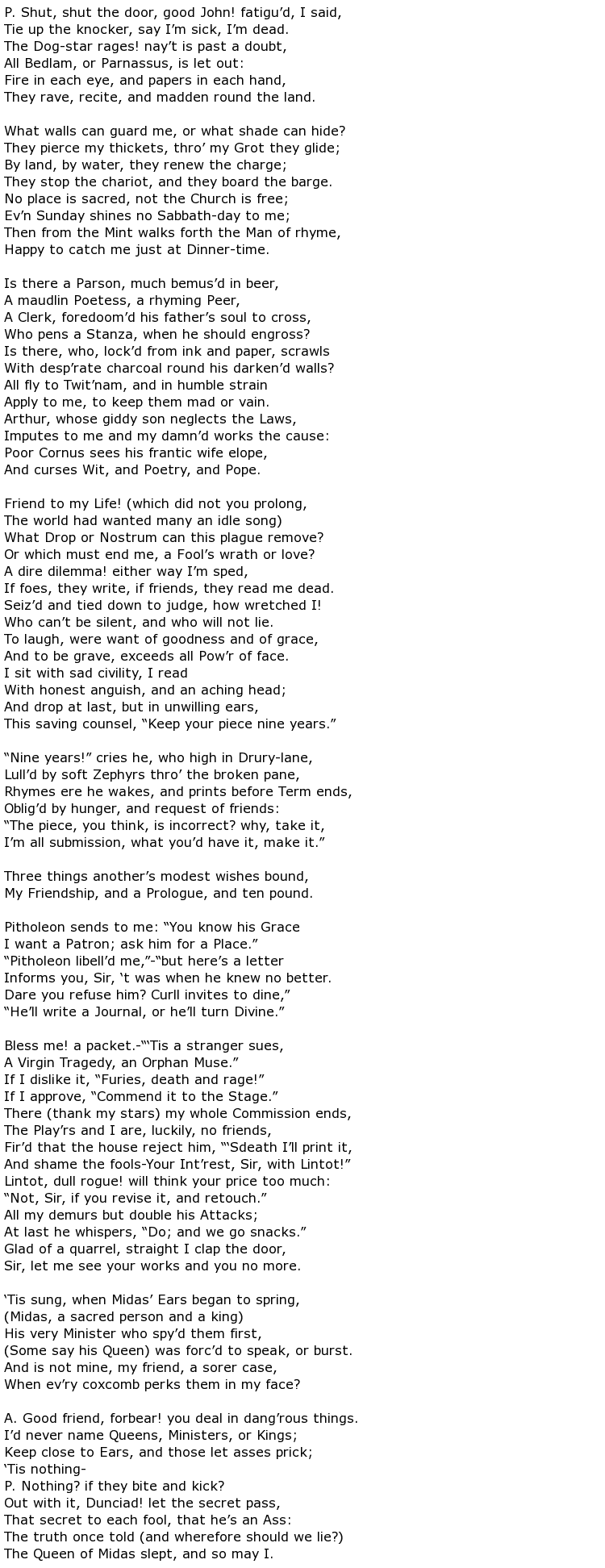 Alexander Pope’s witty and pointed poetic satire brought him infamy during his lifetime. It has also made critical evaluation of Pope in the years since his death more prone to interpretation based on the critic’s personal feelings about such satire than perhaps any other poet in history.
Alexander Pope’s witty and pointed poetic satire brought him infamy during his lifetime. It has also made critical evaluation of Pope in the years since his death more prone to interpretation based on the critic’s personal feelings about such satire than perhaps any other poet in history.
Pope was born the only child of Alexander and Edith Pope in 1688. The senior Pope, a linen-draper, had recently converted to Catholicism, and moved from London to Berkshire to avoid the anti-Catholic sentiment that ran rampant in London at the time.
His family’s Catholic faith kept young Alexander Pope from receiving a formal education, and thus Pope was mostly self-educated, teaching himself literature and languages, including Latin and Greek. Pope’s frail health also thwarted him; at twelve he both composed his earliest known work, “Ode to Solitude” and began suffering from a debilitating bone disease that stunted his growth, made him hunchbacked, and affected his health in general for the rest of his life.
In 1712, Pope published his most famous poem, “The Rape of the Lock,” which made him one of England’s most famous poets. Based on a true incident – a family feud that resulted from a stolen lock of hair – the poem’s hilarious satire won fans throughout the country.
Pope also turned his pen toward translation, beginning an epic translation of The Iliad that he wisely sold by subscription, enabling him income enough to support himself solely by writing.
Throughout his career, Pope’s satirical works, pointed toward other authors, critics, and the general public, often brought him both fame and notoriety, but never more so than upon the publication of Dunciad, a four-volume satire that mocked and lampooned critics and scholars, many well-known, of the day. Pope’s anonymous publication of the book did nothing to dissuade popular opinion that he was the author, and reaction was so hostile from both the targets of the satire and their friends that Pope would not leave home without his pistols.
Pope’s health began a further decline around 1738, and he began to write and publish less. One of his final finished projects was a revised Dunciad, no doubt to the delight of friends and enemies alike. He died at his home in Twickenham in 1744.
Pope’s critical reputation has been surrounded in controversy that did not die down with his death. Spurned by the Romantics during the Victorian period, embraced again in the 20th Century, Alexander Pope is a galvanizing poet whose work may be contentious, but is never less than fascinating – and clever.
Works by Alexander Pope:
From “The Rape of the Lock:”

From The Dunciad


